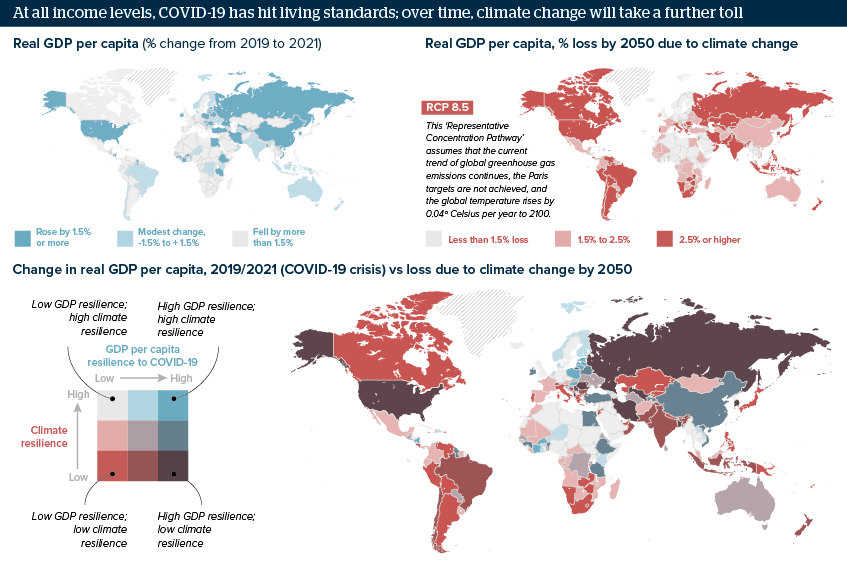COVID-19 crisis complicates nations’ climate financing
Leaders will consider how to fund and reduce the costs of climate change with COVID-19 crisis costs still looming large
Source: IMF World Economic Outlook and ‘Long-Term Macroeconomic Effects of Climate Change: A Cross-Country Analysis’, latest update August 2021, Universities of Cambridge, Southern California, Johns Hopkins, National Tsing Hua University and the IMF
Outlook
Much of the world is not on track to achieve the 2015 Paris Agreement targets, meaning that transformational change is needed at the COP26 summit next month.
Models calibrating the impact of climate change on supply factors including agricultural yields, and on investment and productivity, suggest that all countries will be poorer by 2050 if efforts to meet targets do not surge.
Moreover, 110 countries have seen GDP per capita fall during the COVID-19 crisis. Budget scope has also narrowed, setting the stage for battles over policy priorities. However, awareness of the consequences of climate change is surging. Leaders will chart a course to get close to the Paris targets by 2050.
Impacts
- Swiss Re stress-tested 48 nations for climate risks, ranking ASEAN and India lowest; climate mitigation will be a policy priority in Asia.
- Annual energy investment needs to more than double by 2030 to reduce emissions to net zero by 2050; this requires a huge transformation.
- Proposals for high-income states to target net zero before 2050 because lower-income states cannot do so are unlikely to gain traction.
- Authorities will have to incorporate resilience against climate change impacts into their policies as well as transitioning to clean energy.
